Best AI tools for< Toggle Auto-suggestions >
3 - AI tool Sites
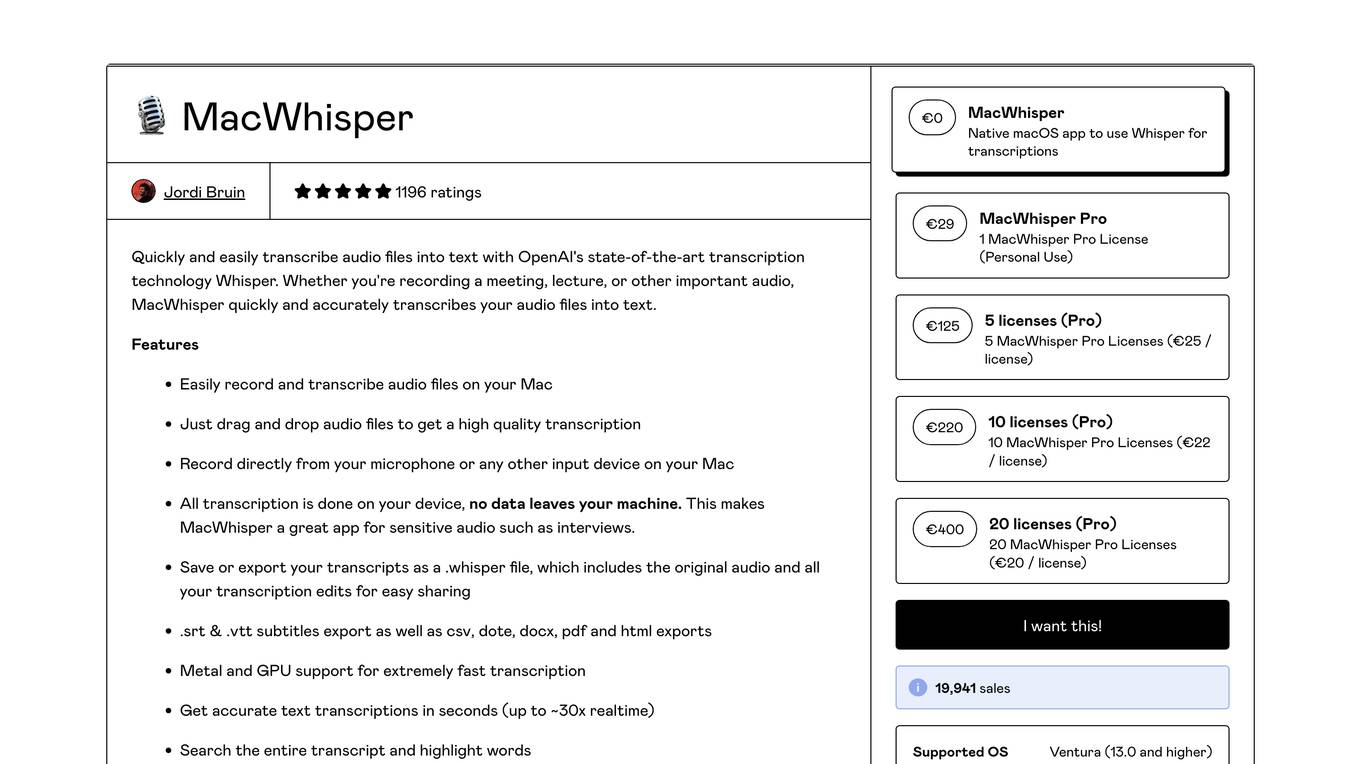
MacWhisper
MacWhisper is a native macOS application that utilizes OpenAI's Whisper technology for transcribing audio files into text. It offers a user-friendly interface for recording, transcribing, and editing audio, making it suitable for various use cases such as transcribing meetings, lectures, interviews, and podcasts. The application is designed to protect user privacy by performing all transcriptions locally on the device, ensuring that no data leaves the user's machine.
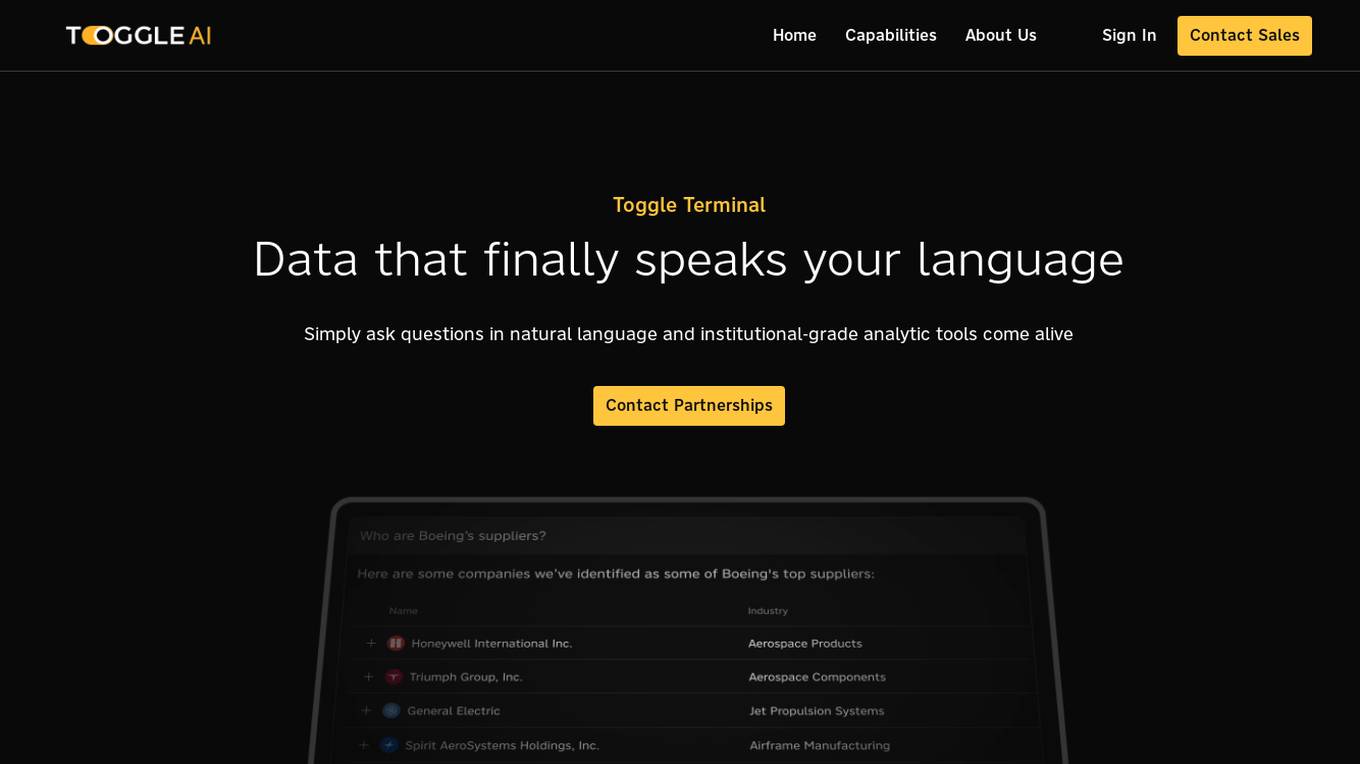
Toggle Terminal
Toggle Terminal is an AI-powered platform that brings data to life with natural language. It offers a suite of award-winning analytic tools wrapped in an accessible, natural language-based user experience. Users can ask questions in plain language and receive immediate, data-backed answers without the need for coding or spreadsheet manipulation. Toggle Terminal provides institutional-grade analytical tools for scenario testing, asset intelligence, chart exploration, and idea discovery. It helps users connect data, test market hypotheses, screen securities, and explore hidden relationships between organizations. Additionally, Toggle AI offers customized AI solutions and integrations for institutional investors in asset management and capital markets.
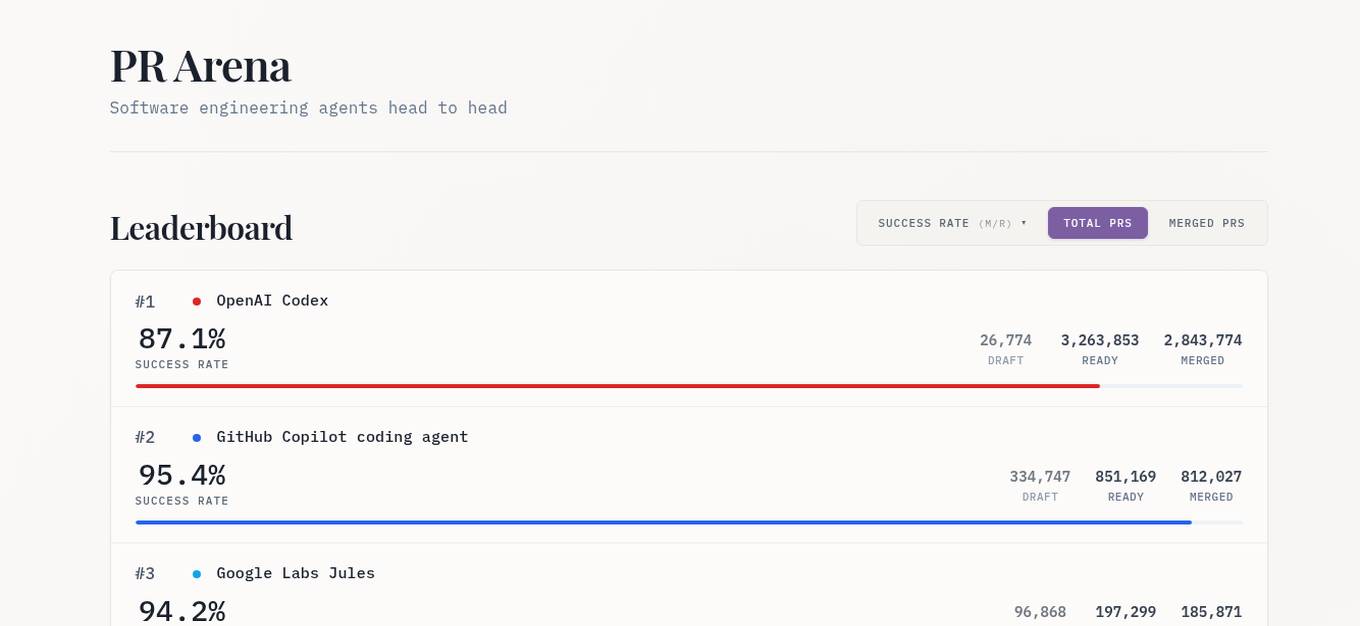
PR Arena
PR Arena is an AI coding agent leaderboard that showcases the performance of various software engineering agents in creating pull requests. It compares success rates, merged PRs, and workflow differences among popular AI coding agents like GitHub Copilot, OpenAI Codex, Cursor Agents, Devin, Codegen, and Google Labs Jules. The platform focuses on each agent's ability to produce mergeable code, regardless of whether they iterate publicly or privately.
1 - Open Source AI Tools
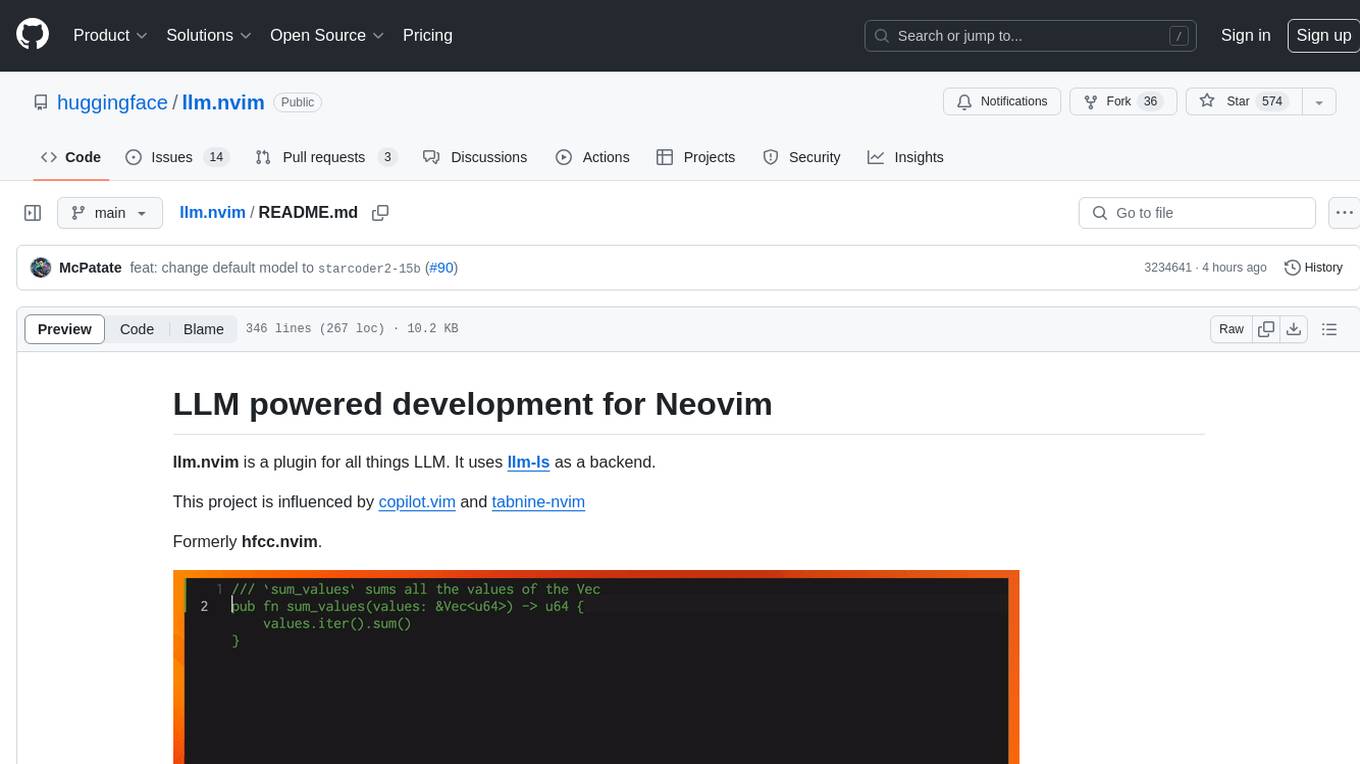
llm.nvim
llm.nvim is a plugin for Neovim that enables code completion using LLM models. It supports 'ghost-text' code completion similar to Copilot and allows users to choose their model for code generation via HTTP requests. The plugin interfaces with multiple backends like Hugging Face, Ollama, Open AI, and TGI, providing flexibility in model selection and configuration. Users can customize the behavior of suggestions, tokenization, and model parameters to enhance their coding experience. llm.nvim also includes commands for toggling auto-suggestions and manually requesting suggestions, making it a versatile tool for developers using Neovim.
1 - OpenAI Gpts
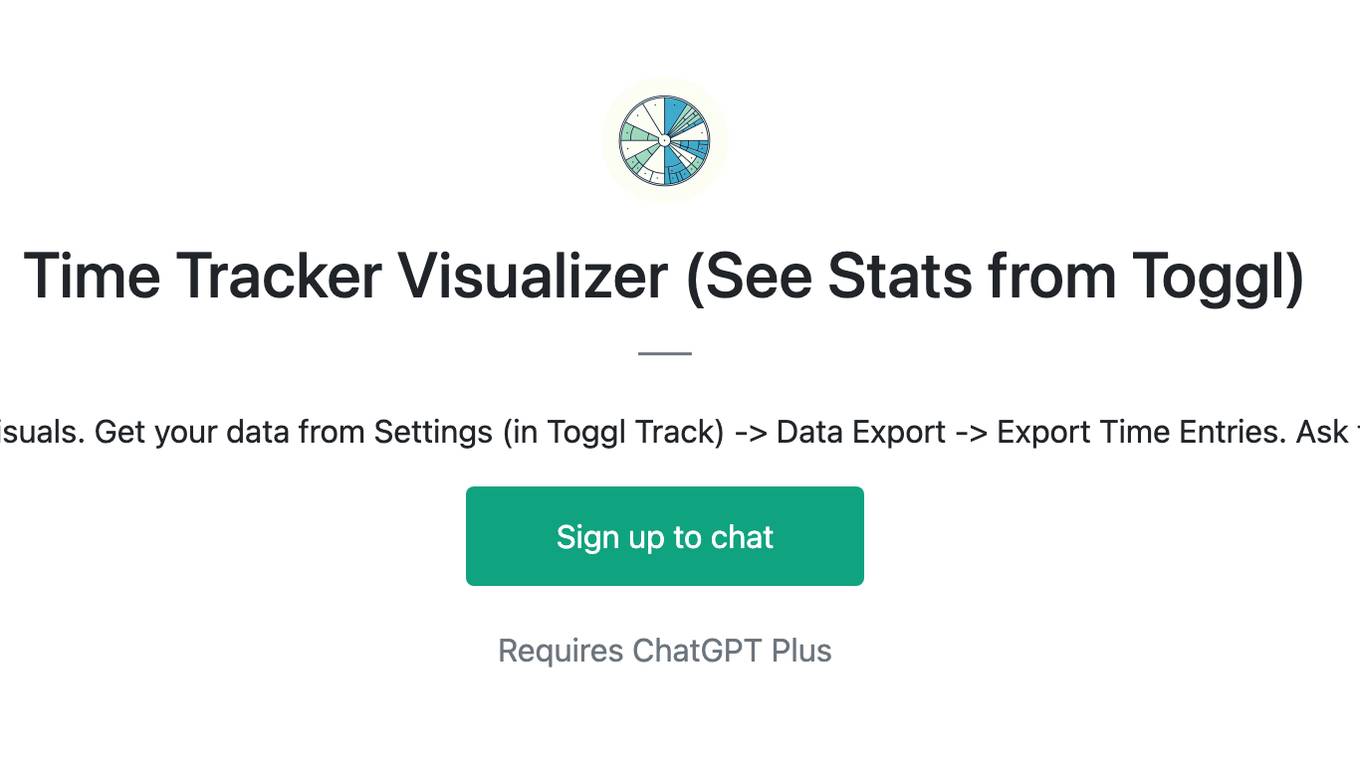
Time Tracker Visualizer (See Stats from Toggl)
I turn Toggl data into insightful visuals. Get your data from Settings (in Toggl Track) -> Data Export -> Export Time Entries. Ask for bonus analyses and plots :)